‘In defence of the gay age gap’
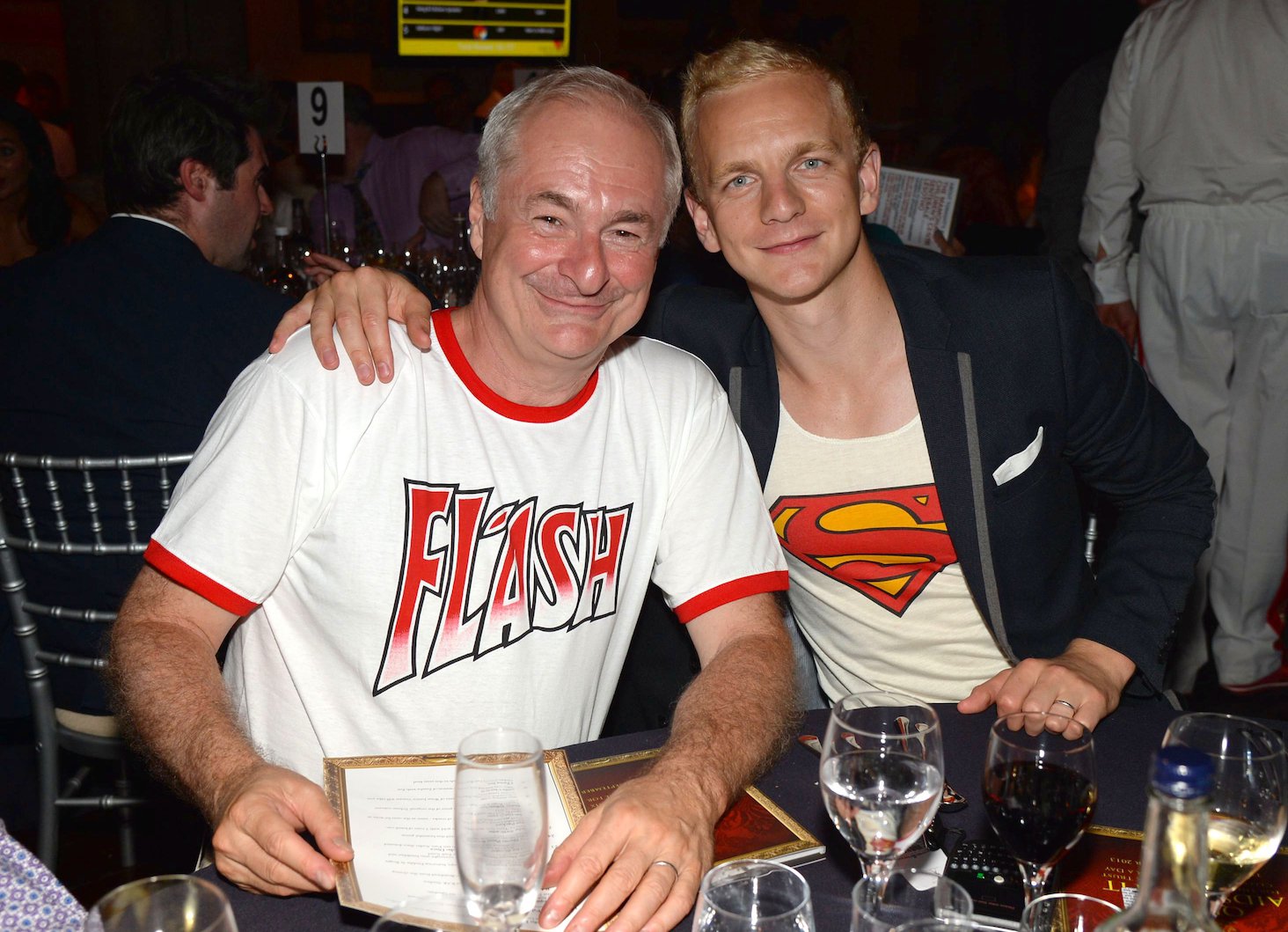
This article was first published in November 2015.
Words: Christopher Sherwood
There is a serendipitous background to this article: I am Chris Sherwood and I have been married to Paul Gambaccini since June 2012 (we married in New York).
Paul is 36 years my senior. Paul was arrested in October 2013 by Operation Yewtree detectives following false allegations of historical sexual offences against under-age males. Paul spent a year on bail, during which time he kept a journal. After Paul’s case was dropped, the journal became a book called Love, Paul Gambaccini. It was published by Iain Dale’s Biteback Publishing.
To mark the occasion Paul and I shared a delightful evening over dinner with Iain Dale and his age-similar husband. Soon thereafter, Attitude interviewed Paul about his Yewtree experience for an article that appeared in the December issue. It remarked: “From getting to know them as a pair, and seeing the weighty role Chris has undertaken in guiding Paul though his travails, it’s hard not to be inspired by his solidarity and loyalty.”
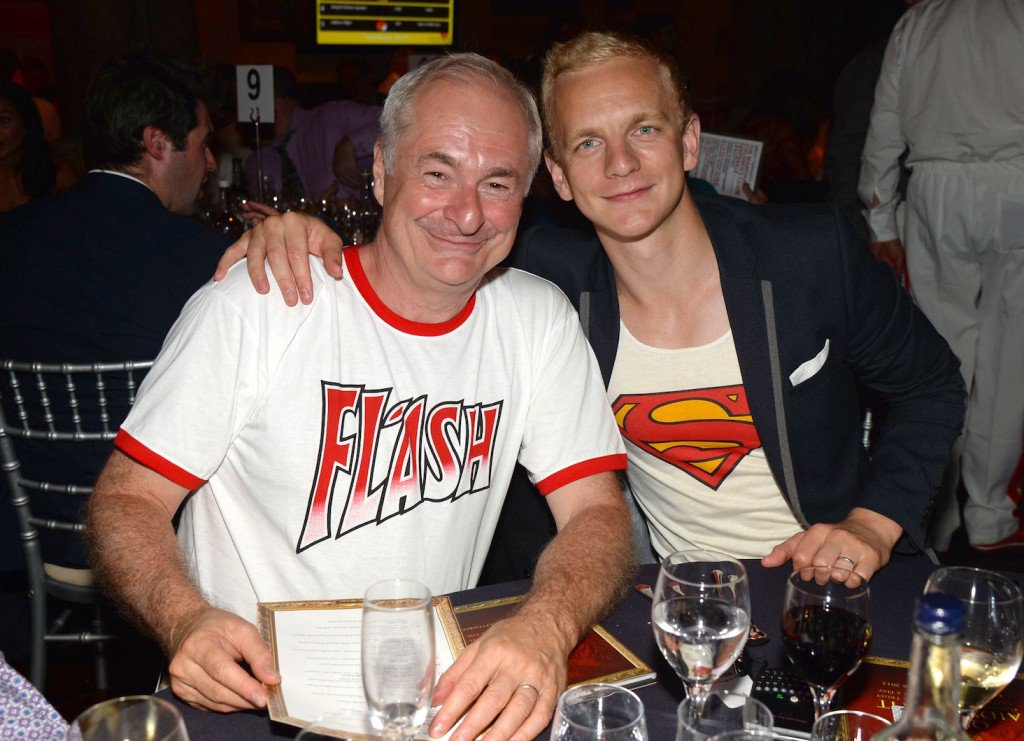
Chris Sherwood (right) with husband Paul Gambaccini (Photo by REX/Richard Young)
In that very same issue, Iain Dale shared his views on age differences in homosexual relationships, a response to Graham Norton’s position that men his age don’t want to date someone of their own age: “[Norton] could be mistaken for perpetuating the tired old seedy gay myth that we’re all only interested in younger models… I couldn’t imagine being in a long-term relationship with anyone much more than ten years my junior… I just think that in my case, there would be too many differences in cultural narrative… Oh, by the way, Angela Rippon was a BBC newsreader in 1976. There, if you’re a younger reader, you’ve just learned something.”
In my interpretation of his column, I reach a few conclusions: Iain resents people’s assumption that as an older gay man, he must only be interested in younger men.
For Iain, the idea of older men being interested in younger men is seedy. For Iain, a meeting of minds is central to a successful relationship and that is only possible if there is a shared cultural history, something that people more than 10 years younger than him probably don’t have. He accepts that age-difference relationships might initially work, but what about in 20 years time when one partner requires care?
I don’t have a problem with Iain harbouring these views. I hold him in extremely high regard, both personally and professionally. I am simply using these views as a springboard for presenting my own, rather different perspective. I’d argue that in fact there are younger men who are well capable of crossing cultural swords with senior generations (for the record, Iain, I did know who Angela Rippon was and I am 23 years younger than you).
I’d like to help reframe the way we think about age-difference relationships in light of my own experience of being in one, and in light of my thoughts on why the ‘seedy older gay man’ stereotype might exist.
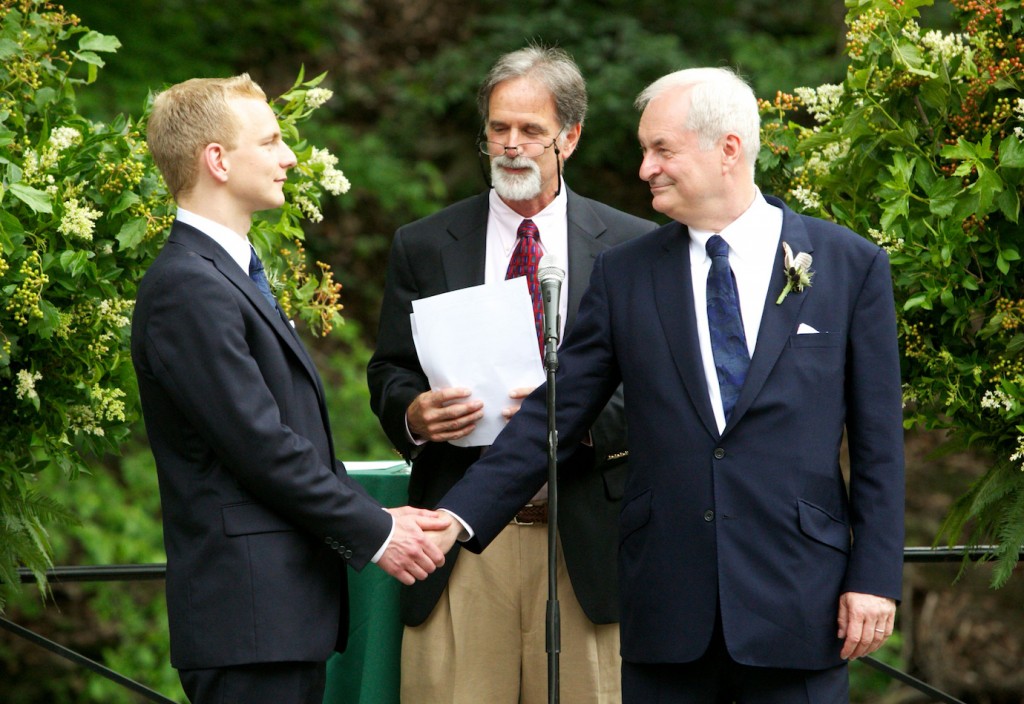
We know that classifying oneself as gay elicits an immediate opinion from others, based on their prior experiences of what it means to be gay. Generalisations are made, and just like Iain, I notice that the assumptions that are made about me when people discover that I am gay are invariably wrong.
For one, they immediately assume that I am attracted to young men. I am not and never have been. For me though, this attraction has nothing to do with cultural awareness, intelligence, money, experience, comfort or anything else people usually suspect, but has everything to do with raw physical attraction.
The reasons for this, if there are any, are unknown to me. People ask if my parents are still together. They ask what my relationship with my father was like. They are together and my relationship with both of them was very normal. I’ve never been abused. I’ve entertained one or two possible theories over the years, but of course it’s completely speculative. It feels like I was just born this way.
Indeed, for as long as I have been sexually aware, I have been drawn to the older form, both male and female. At school it would be my teachers, not my peers who would be the subjects of my urges. Clearly, the usual generalisations do not apply to me. Indeed, Iain resents the generalisations made about men of his age, but then makes a broad-brush generalisation himself about people 42 years old and under. I am not necessarily disagreeing with his generalisation. It is one based on his life experience. It’s one that would likely serve him well if in future he finds himself searching for a new partner.
I suppose the lesson here is that we must be aware when we are making generalisations that might offend people. We have to be open to the possibility that there will be exceptions to the generalisations we make. But crucially, we must be careful not to layer the generalisations we make with values, such as when Iain describes the ‘myth’ that all older gay men are attracted to young men as being seedy.
My husband is attracted to younger men. Does that make him seedy? It’s probably true that the majority of older people are in some way attracted to people younger than them. Are they all seedy as well?
It’s easy for many of us to assume that older people are wise, wealthy and intelligent. On the other hand, many would assume that younger people are naïve, poor and easily persuaded. Therefore, an older person must have manipulated or groomed their younger partner in some way, because the younger person can’t possibly be genuinely attracted to the older person.
At the age of 24, I experienced these assumptions first-hand when I first came out to friends and family as being gay, and in a relationship with a 61 year old. “It’s drugs isn’t it? He’s got you into drugs. That’s what this is about.” “Why on earth would someone of that age want to spend time with you?” “How can you possibly be attracted to someone that old?” These are all things that people actually said to me.
The concept contravened the way they classified the world, so it was met with incredulity, disgust, and the assumption that there must be some other reason for it outside of normal sexual attraction. We saw the same hysteria when Stephen Fry married his significantly younger partner, Elliot.
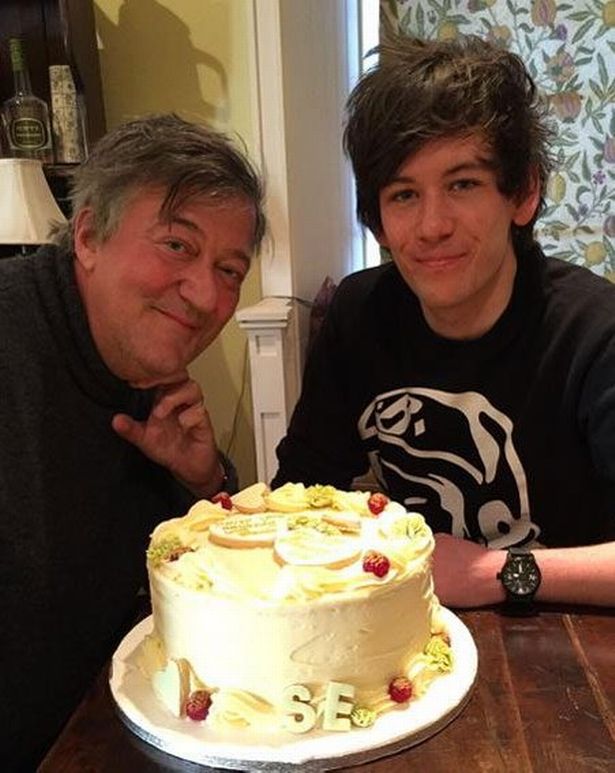
Historian Jeffrey Weeks writes: The most pervasive stereotype of the male homosexual was as a “corrupter of youth.” It possibly still is – this stereotype continues to sit deep in our psyche. Even Iain Dale has been influenced by it in his use of the word ‘seedy’.
At this stage, however, I am willing to give him the benefit of the doubt and assume that what he really meant was that it’s other people who view age-difference attraction as seedy, and Graham Norton was exacerbating this perception with his comments.
In fact, Iain’s feelings about such attraction seem more underpinned by practical considerations rather than by irrational emotive views. He raises two common practical questions: Can such relationships really work given the inevitable differences in cultural experience? And what happens when the older half comes of an age that requires consistent care?
The care question is one I have been asked a lot. For me, it’s an easy one to answer: I am only physically attracted to older people. Given that a healthy sexual relationship is the first foundation laid in any successful romantic engagement, being in a relationship with someone closer to my own age is simply not an option. I wouldn’t be able to get it up for the poor lad. So I am limited to potential partners who, if nature takes its course, will decline in health well before me. I may well end up playing the care-giver where once I played lover.
But what is the alternative? To deny myself happiness and love because of what may or may not happen 20 years down the line? To remain single against the will of my instincts so that, God forbid, I never have to care for someone I love for a few years? I don’t believe I need to spell out why such alternatives are not really alternatives at all for people who happen to fall in love with an elder.
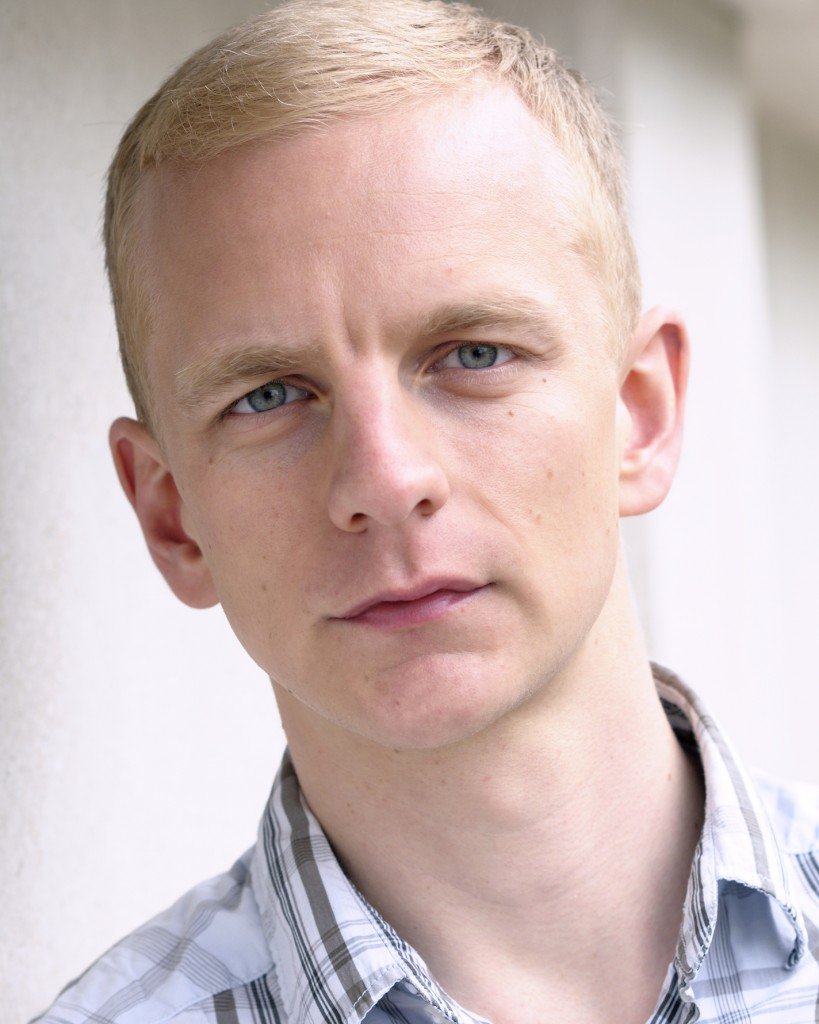
Christopher Sherwood
When it comes to cultural narratives, as Iain describes them, I agree that cultural compatibility is crucial to the success of any relationship. Where I disagree, however, is in the albeit flippant suggestion that the important aspects of the cultural narrative are the arbitrary parts of our historical culture such as who read the news in 1976, or who won the Eurovision Song Contest in 1981.
I get that there is something about ‘having been there at the time’ that bonds people, but isn’t it naïve to focus on that at the expense of much more fundamental cultural aspects of a relationship? Does Iain exclude same-age foreigners from his list of possible lovers for the same reason? Is it really age, therefore, that is the issue?
Life stage compatibility is crucial to any relationship. With age-difference relationships, this is a genuinely common problem, I am sure.
But isn’t the same true for age-similar relationships? What about when one party wants to settle and have children when the other is more concerned with career advancement? I am a year into my second career as an actor and personal trainer after seven years in the advertising industry, so am hungry and dedicated to making a success of that. I don’t have much money again because I’ve gone back to the bottom rung of a new ladder.
It’s easy to imagine that had I married a retired man who wanted to travel, problems attributable to life stage differences would arise. Fortunately, my pensionable partner remains busy, passionate, and dedicated to his work. He has no intention of retiring…ever. Accordingly, our lifestyles work together, with regular mutual support and appreciation of each other’s successes. Again, age is not an issue.
As a parting thought, I encourage anyone reading to seek out and watch the French-Canadian film, Gerontophilia, written (with Daniel Allen Cox) and directed by Bruce LaBruce. It beautifully captures and conveys so much of the truth I have tried to uncover in this article through the eyes of young Lake, who like me is physically attracted to much older men.
Come over and watch it with me, Iain. Perhaps you’ll learn something.
